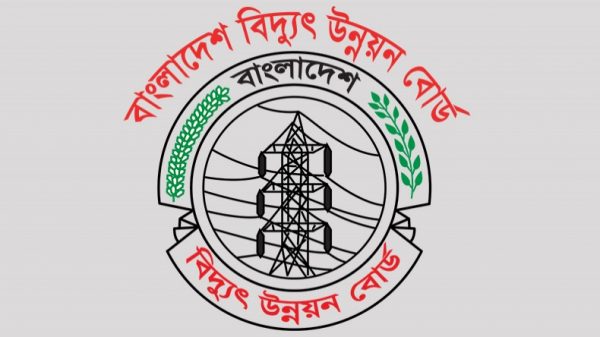PDB mulls bank loans for first time

Shawdesh Desk:
The Power Development Board is seeking commercial loans to tackle the crippling financial crisis that has kept many power plants out of operation due to energy shortages, resulting in rolling power cuts for about a year.
According to current and former PDB officials, the state-owned power company in its history has never taken commercial loans to manage liquidity crisis despite almost always selling electricity at less than the production cost.
Power experts said that the PDB move was reflective of the government’s declining economic ability and firm stance on no longer providing subsidies, which always bailed out the state-owned power enterprise.
Neither the PDB officials nor the Power Division secretary, Habibur Rahman, officially commented on the matter, but New Age saw a copy of the letter discussing the PDB’s need to obtain commercial loans.
‘The matter has been under consideration for several months,’ said Mohammad Hossain, director general, Power Cell, a wing of the Power Division.
‘Mounting PDB losses amid the economic crisis have pushed the authorities to think about this alternative source of fund — loans from commercial banks,’ he said.
The letter said that the PDB needed commercial loans as they continued to sell a unit of electricity at Tk 6.70 — far below the production cost of Tk 11.50 — despite a severe liquidity crisis.
‘We are trying so hard to save a penny,’ said a PDB official, sharing the scaring prospect of many of the peaking power plants sitting idle during the peak of this summer.
The PDB has not been able to pay the power producers since May with the outstanding bill reached at Tk 36,000 crore.
The PDB relied on peaking power plants, fuelled by oil, to meet additional power demand during peak hours at the height of summer as gas and coal prices and supply chains remained unreliable.
‘How can you expect to see the peaking power plants in operation under the current financial circumstances?’ asked the PDB official.
The PDB also found out coal vendors other than regular ones discovering an opportunity to save at least $5 per tonne but was unable to make any procurement because of the liquidity crisis, said the PDB official.
Of the 154 power plants with 23,482MW installed capacity, excluding captive power, 58 power plants worth 10,246 MW are owned by the government.
More than 40 of the government-owned power plants are directly operated by the PDB while the rest are run by its subsidiaries.
A fourth of the PDB-operated power plants remained out of operation due to fuel shortage on Sunday.
Half of the power plants could not be operated, largely because of energy crisis. On Sunday, a little over 10,000 MW was produced.
Despite increase in power tariff on three occasions since January, the difference between the production and selling costs of electricity remained very high, largely because of predatory power sector expenses, according to energy experts.
The financial burden of the PDB mounted greatly under the incumbent government following an aggressive expansion of power production capacity based on fossil fuel imports on account of unsolicited deals excessively beneficial to private investors.
The PDB’s annual debt obligation for power sector mega projects stood at $2 billion, with the PDB and its subsidiaries owing roughly $9 billion to overseas lenders.
In the past 11 years since 2010–11, the incumbent government has paid Tk 72,567 crore in capacity charge, according to an estimate by the Bangladesh Working Group on External Debt, more than Tk 47,262 crore of which has gone to 12 foreign and local private companies.
The PDB losses over the same decade reached Tk 76,115 crore.
The government in the current financial year has promised to give maximum Tk 23,000 crore in subsidy to the power sector. The PDB says that its dues will stay around Tk 54,000 crore even with the promised subsidy.
The subsidy almost equals the capacity charge, a payment ensured under power deals guaranteeing returns with substantial profit on private investments.
The capacity charge is likely to significantly go up over the next five years with massive base load power plants coming into operation within the period.
‘No amount of commercial loan is going to get the PDB out of the liquidity crisis but would rather deepen the crisis,’ said BD Rahmatullah, former director general of the Power Cell.
A large part of the PDB’s financial burden is attributed to corruption and inefficiency checking what could save the government Tk 1,054.9 crore, said the Consumers Association of Bangladesh in 2019.
Almost 90 per cent of the PDB’s accumulated losses consist of subsidies and the accumulated interest on the subsidies. The subsidies came with 3 per cent interest, currently generating Tk 1,300 crore yearly, which the PDB never paid back.
‘Commercial loans would require paying back a higher sum of money, increasing the financial burden,’ said Rahmatullah.
Commercial loans can charge up to 9 per cent of interest.
The possibility of the PDB obtaining commercial loans for riding out its liquidity crisis was first raised in November 2022 by the International Monetary Fund which is giving $4.7 billion in loans to the government caught in a severe economic crisis.























Leave a Reply